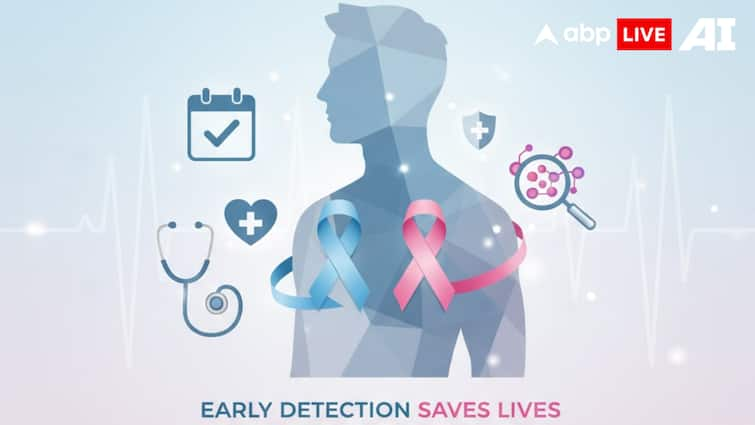{By: Dr Ankit Jain}
When we discuss cancer awareness, a majority of campaigns and discussions usually go to women, breast cancer, cervical cancer, ovarian cancer and rightly so. However, in the process, we usually forget that men have their own cancers equally severe but hardly spoken of. One such pair of cancers among them is male breast cancer and prostate cancer.
Raise awareness, shatter stigma, and promote early diagnosis because silence and delayed detection are usually what kill these cancers in men.
ALSO READ: Breast Cancer Awareness Month 2025: Experts Reveal Silent Risks, Early Detection, And Prevention
Male Breast Cancer: The Unspoken Truth
Many are surprised to hear that men can get breast cancer as well. While uncommon making up less than 1% of all breast cancers male breast cancer is typically diagnosed later in life because it’s just not anticipated. Most men ignore early warning signs such as a painless lump, nipple discharge, or skin changes, thinking it’s “nothing serious”. The ignorance means they come in for medical attention only when the disease is well advanced. Finding it early can be the key as it can be for women.
Men should be aware: Any swelling, lump, or new development near the nipple should never be taken lightly. Family history of ovarian or breast cancer (particularly BRCA2 mutations) puts someone at risk, so regular checks and genetic counseling can be recommended for high-risk patients.
Prostate Cancer: India’s Growing Concern
Prostate cancer is the most prevalent cancer in men globally and its rate in India is increasing steadily because of lifestyle changes, increased longevity, and greater use of screening. The prostate is a small gland that has an important function in maintaining male fertility. When cancer arises here, the growth tends to be slow but, in some instances, can develop quickly. Sadly, early warning signs such as trouble urinating, weak stream, or blood in the urine are too often written off as “age-related.” This delay in diagnosis may limit treatment choices and results. Regular PSA (Prostate-Specific Antigen) tests and digital rectal exams can catch prostate cancer early. Men over 50 or 45 for men with a family history should discuss regular screening with their physicians.
The Gender Gap In Cancer Awareness
Public health efforts have come far in informing women about self-examination and routine screenings. Men’s health discussions, though, remain behind, frequently because of stigma, unease, or the absence of open discussion regarding male cancers. The idea that “men don’t get breast cancer” or that “urinary issues are part of growing old” must shift. Awareness, talk, and preventive action are essential for men and women both.
Promoting Early Detection And Assistance
Men need to be persuaded to:
- Conduct routine self-exams and report unusual alterations.
- Scheduling yearly health check-ups, prostate and hormone tests.
- Take healthy habits such as physical exercise, balanced nutrition, and giving up smoking to reduce risk.
- Discussing family cancer history openly and obtaining timely genetic counseling when indicated.
Both prostate cancer and male breast cancer are equally deserving of the same amount of attention, sympathy, and early intervention efforts that women’s cancers get. Breaking the stigma, promoting regular screening, and creating awareness can save innumerable lives because when it comes to combating cancer, early action is the best protection.
The author, Dr Ankit Jain, is a senior consultant, medical oncology, at Indraprastha Apollo Hospitals.
[Disclaimer: The information provided in the article is shared by experts and is intended for general informational purposes only. It is not a substitute for professional medical advice, diagnosis, or treatment. Always seek the advice of your physician or other qualified healthcare provider with any questions you may have regarding a medical condition.]
Check out below Health Tools-
Calculate The Age Through Age Calculator


